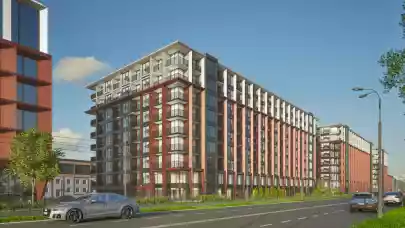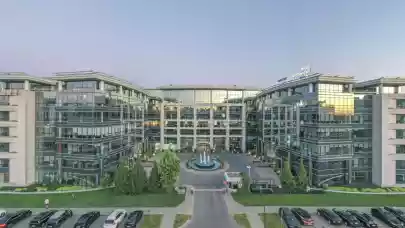
Austrian developers and construction companies show a good example of how to realise truly sustainable buildings. Green residential projects are not a goal, but practice in Austria, says Rudolf Riedl, Managing Director of SÜBA Hungary who also shared his opinion on the shortcomings of the Hungarian real estate market.
Sustainability is a must in every segment of the economy. What are the latest general results of this "homework" in Austria?
Austria is a leading country in building low-energy consumption buildings. Green building certificates are almost everywhere a standard. We do have a lot of so-called „social housing projects” and even those fulfil green building standards. In addition, ESG is becoming more and more important within the last few years. This will be standard shortly. Bigger development companies will be obliged to follow ESG rules in general.
What are the main standards to become truly sustainable? Which of them are required from developers and construction companies in Austria?
Low energy consumption is a must. SÜBA is already using heat pump systems for heating/cooling. Gas or oil-based heating systems are not allowed any more in future. In our latest project in Vienna, we have integrated a lot of energy-saving solutions and could achieve a “Plus Energy Building” which means over the year we produce more energy than we consume. This is part of our specialist concept of the Productive City. This concept paves the way for reuse of existing sites. The focus of this process is the creation of a comprehensive package for residents, users and neighbours in one quarter at an affordable cost and in line with the highest climate protection standards.
The recent energy shock has shaken many players in the commercial real estate business. What intelligent energy solutions can be introduced to fight against sky-rocketed prices?
As you mention yourself we use intelligent technical devices to combine in best way cooling and heating solutions. We implement large-scale photovoltaics as an alternative electricity supply. It's a combination of several solutions and not one activity only.

Rudolf Riedl
Managing Director
SÜBA Hungary
We would like to witness a shift in the residential development market too. Is this already happening in Hungary or do you hear companies just talking about it?
In the residential sector, good thermal isolation is common practice in Hungary. Low-energy and sustainable buildings are done in the luxury segment only because they are more expensive, but the normal housing developments are getting better and better too.
Austria has always been a frontrunner of "green thinking" and developers enjoy government support to realise sustainable residential projects. What can be adapted from their practice in Hungary?
Landlords and Developers need clear and long-lasting regulations to follow. This is the most important topic. In Hungary, the conditions are always changing. We need a reliable consistent legal background as real estate developments are investments for decades. From a technical point of view, the Hungarian market is meanwhile very close to the Austrian!
Do you agree that people in the rental market could accept higher prices if the dwelling were made eco-friendly and energy costs would be less than average in the long run?
Yes, I think so. The main argument for sustainable and eco-friendly projects is lower operational costs. Owner-occupied buildings are mostly done this way, rental homes and offices not really. For the investors lower investment costs are more important than lower running costs, because they are covered by the tenants. This is hopefully going to change with the new ESG regulations in future.



